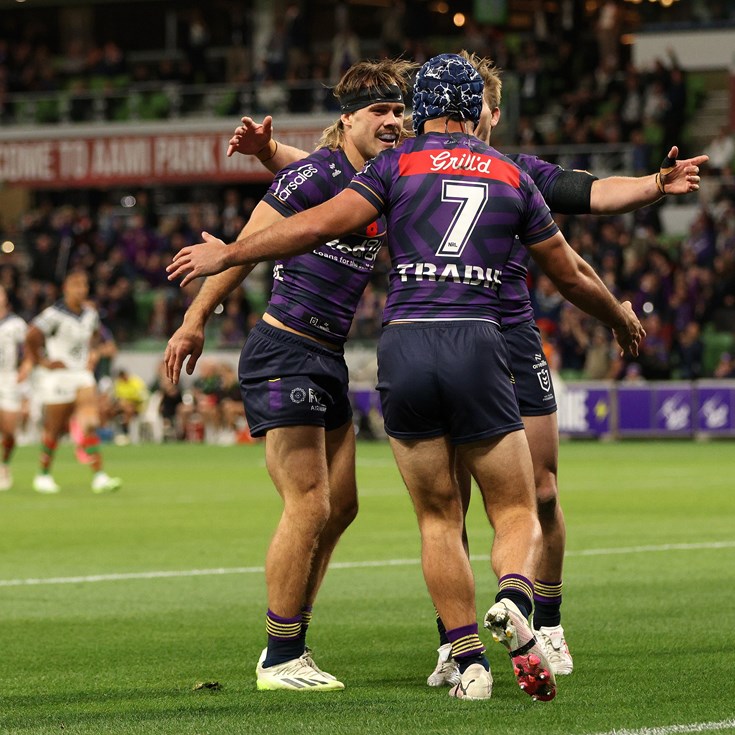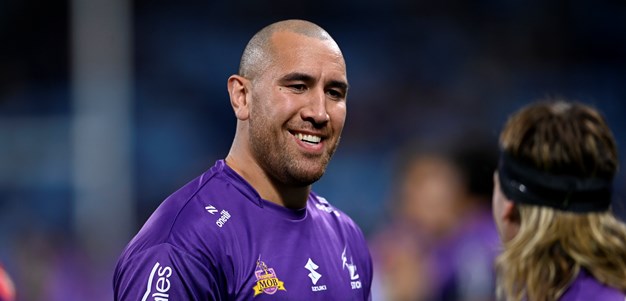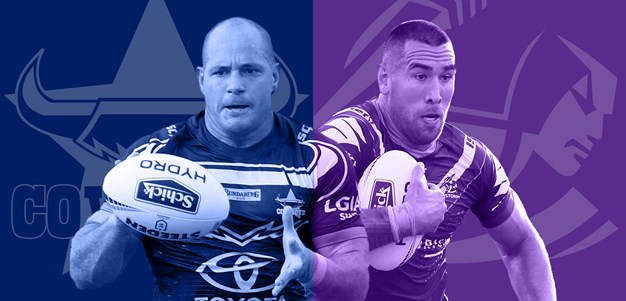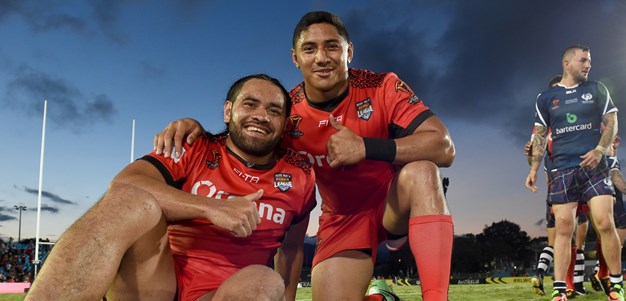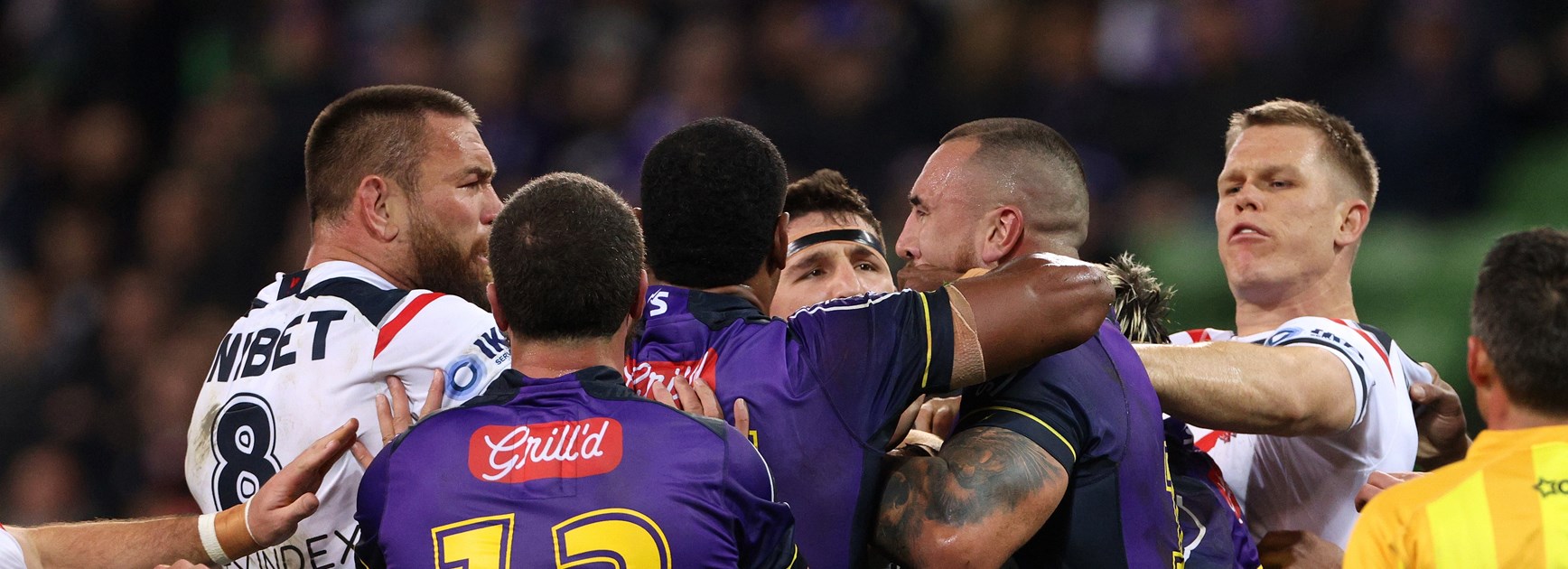
NRL head of football Graham Annesley has warned that players who repeatedly attract minor charges from the match review committee may be hit with a higher grading and increased penalty as a personal deterrent.
Annesley revealed at his weekly media briefing that the match review committee has the power to impose a grade two charge for an offence usually regarded as a grade one offence for repeat offenders.
The warning coincides with Melbourne Storm prop Nelson Asofa-Solomona pleading guilty to his fifth charge of the season – a grade one dangerous contact for dropping a forearm on Sydney Roosters winger Joseph Suaali’i during last Friday night’s 18-14 loss at AAMI Park.
Roosters prop Jared Waerea-Hargreaves also received his fourth grade one charge this season and was fined $3000 for contrary conduct.
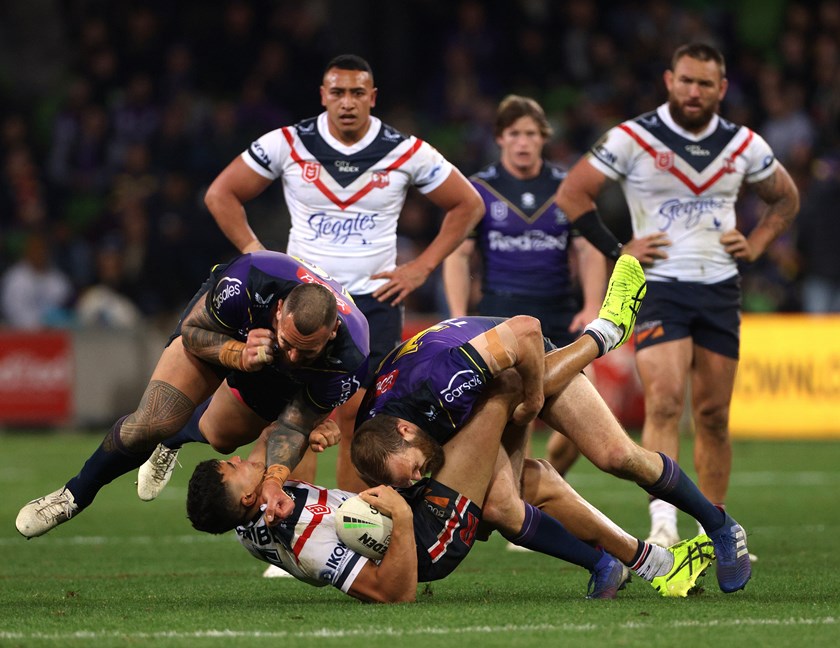
It is understood the only player the match review committee has previously felt the need to deliver a personal deterrent to in the form of an elevated charge was St George Illawarra forward Josh McGuire, while playing for the Cowboys in 2019.
While Annesley was not speaking specifically about Asofa-Solomona, he said the match review committee would consider the option to impose a personal deterrent on any player who appeared not to be heeding “the message” after repeated fines.
“Some players do play on the edge much more than others, Nelson isn’t the only one in the competition,” Annesley said. “There are players in the competition that go closer to those limits than others, and that is fine, as long as they don’t cross that line.
“In relation to players who are constantly getting low level charges, those outcomes do increase but importantly there is another factor in the judiciary code that can deal with those incidents as well, and that is where the match review committee feels the need for a personal deterrent.
“In other words, any player in the competition who has had a number of low-level, grade one charges, if the match review committee feels that they are not getting the message, the match review committee has the right under the rules to say you need a stronger personal deterrent so therefore your grade one charge will be elevated to a grade two charge.
“That is perfectly legitimate under our rules and that falls into the category of a player having a personal deterrent sent to them by an increased charge.
“Although it may be grade one level incident, they can get a grade two charge because of the need for a personal deterrent.”
Things are heating up in Melbourne
Asofa-Solomona has now been fined a total of $11800 this season for the following offences:
- Round 3 - Careless High Tackle ($1000 fine)
- Round 18 - Careless High Tackle ($1800 fine)
- Round 19 - Careless High Tackle ($3000 fine)
- Round 19 - Dangerous Contact ($3000 fine)
- Round 24 - Dangerous Contact ($3,000 fine)
Waerea-Hargreaves has had four grade one charges this season:
- Round 5 - Dangerous Contact ($1000 fine)
- Round 11 - Contrary Conduct ($1800 fine)
- Round 20 - Dangerous contact ($3000 fine)
- Round 24 - Contrary Conduct ($3000 fine)
McGuire received three contrary conduct charges in 2019 for raking the face of rival players, with the first two incidents - involving Melbourne's Cameron Munster and Manly's Dylan Walker - being deemed grade one offences.
The third incident, involving then Broncos forward David Fifita, was considered no more serious but because McGuire hadn’t amended his ways after fines totalling $7900 for the previous offences it was felt that stronger action was needed.
Instead of another grade one contrary conduct charge, McGuire was hit with a grade two charge and suspended for three matches. Annesley said players who repeatedly infringed also faced the risk of elevated grading.
Graham Annesley weekly football briefing - Round 24
“That is a call that the match review committee is responsible for,” Annesley said.
“But clearly, whenever players are continuously offending, they are not only running the risk of a charge but they are running the risk that the charge may be elevated if the match review committee forms a view that the player isn’t getting the message.”

